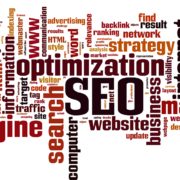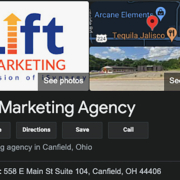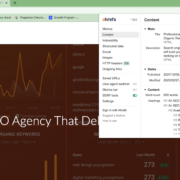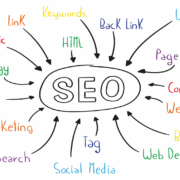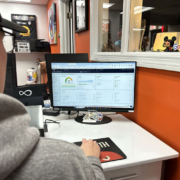6 SEO Mistakes You Might Be Guilty Of That Could Hurt Your Business
SEO is important. In fact over half of the visits to any given website come from a search engine. Getting to the top of the SERPs is essential to reaching your target audience and growing your business. Which means that if your SEO strategy is lacking – well, it can hurt pretty bad.
You may think your digital marketing strategy is iron clad, but you could be making some of the most common SEO mistakes without even realizing it. Search engine algorithms are becoming more developed by the day. To make sure you’re getting the most organic traffic you can, you need to make sure your search engine optimization is at the top of its game. Checking your website’s SEO for some of the most common, but biggest mistakes, is a great first step.
1. Neglecting Keyword Research/Focusing on the Wrong Keywords
Knowing the relevant keywords for your business is one of the most important aspects of landing at the top of the SERPs. This means that if you’re selling shoes, you don’t want to focus on keywords for chocolate cake. But there’s more to it than just that.
No matter how relevant they are – you may be beating a dead horse if you’re trying to rank for the wrong keywords. In order to increase your page rankings, you need to research and focus on keywords you actually can rank for. Short-tail keywords with a high search volume are great – but you also need to include long-tail keywords.
Short-tail keywords are, well, short. Generic. Think “sandwich.” . They might get tons of searchers per month, but there are also tons and tons of web pages ranking for those terms. Long-tail keywords are more specific. Think “best running shoes for men.” These long-tail keywords have lower search volumes, but they can help boost your relevance and authority – and they tend to be easier to rank for because there’s less competition.
2. Keyword Stuffing
Having relevant keywords is important – but not as important as providing high-quality content. If you’re writing your content for the search engines alone and stuffing keyword after keyword into your copy, it’s going to hurt your conversion rates. First – it’s going to frustrate your potential customers by serving them up low-quality content (because, inevitably that’s what keyword stuffing will produce).
Second, the search engine’s are advanced enough to catch it, and they’re going to punish you for it. In fact, Google has been cracking down on keyword stuffing for over a decade. Focusing on the algorithm instead of your human target audience is a common beginner’s mistake when developing an SEO strategy, but it’s a serious infraction that will hurt your marketing efforts.
3. Not Focusing on User Experience
Writing garbled keyword stuffed-nonsense isn’t the only way you may be frustrating your web page visitors and hurting your SERPs ranking. Google and other search engines prioritize serving up web pages with not only the most relevant content, but also those that provide a quality user experience.
This means that you have to make sure to keep your page load time’s low. Slow loading speed on the first page your visitors land on is especially important, as the lower your landing page speed, the more likely your potential customer will leave. Bounce rate may not be a Google ranking factor, but it is going to hurt your conversion rate if customers keep leaving before your page loads. Oh – and site speed is a ranking factor, so it’s worth some attention.
If you’re having trouble keeping your page speed low, then try getting rid of unnecessary plugins or reducing image sizes. This will help lower your loading speed. You want to make sure your website performance is up to snuff as it’s an important part of technical SEO.
4. Ignoring Your Meta Tags and Title Tags
Tags don’t just help boost your visibility on social media sites – they’re also important to have on your website. Meta tags and title tags, that is. Meta tags are the different metadata elements on a page such as your meta descriptions, bot attributes, keyword attributes, alt tags, and title tags.
Most meta tags don’t show up to the naked eye but they do help Google crawl and index your site, which is important for placing high on the search engine results. Having more than one H1, not including H2s or H3s, these can make it more difficult for search engines to index your website. Your page titles and headings can help you place higher on the SERPs as well as let your audience know what your content is about if you place relevant keywords within them.
You want to make sure to provide alt tags for your images with relevant keywords. This will help the crawlers “see” the images and understand their relevance and increase your website’s SEO.
5. Not Fixing Broken Links
Broken links are another issue that could affect your SERPs placement. Links redirecting to a 404 will not only cause visitors to leave, but it hurts the crawler’s ability to index your site.
Worried about broken links on your website but don’t have the time to go through and check every single one? Running a site audit on Google Search Console can help you figure out which ones are leading to a 404.
6. No Backlinks or Internal Links
You need a link building strategy. This helps increase your website’s authority, which helps it place higher on the SERPs. For a link building strategy to be effective, you have to link to quality sites, however. And, you also should include internal links back to your own content.
When link building, don’t skip over writing actually compelling anchor text. Not only is it helpful for your audience, since they know exactly why it’s relevant, it helps the search engine crawlers index and understand the link.
Don’t Let Common SEO Mistakes Hold You Back
Looking for a lift when it comes to your SERPs placement, but not sure you can navigate the ever-changing rules of the algorithm without goofing it up somehow? We’ve got your back. We here at Lift Marketing know all the ins and outs when it comes to digital marketing. We’re masters of SEO, social media, and content marketing – you name it, we can handle it. Just drop us a line and you’ll never have to worry about these common SEO mistakes again.




